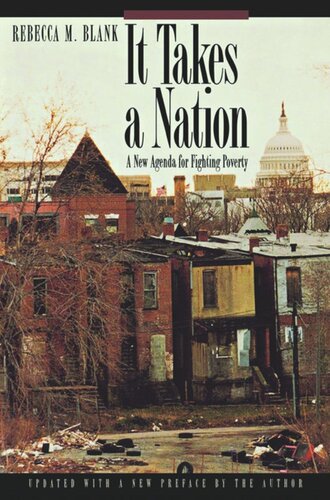

Most ebook files are in PDF format, so you can easily read them using various software such as Foxit Reader or directly on the Google Chrome browser.
Some ebook files are released by publishers in other formats such as .awz, .mobi, .epub, .fb2, etc. You may need to install specific software to read these formats on mobile/PC, such as Calibre.
Please read the tutorial at this link: https://ebookbell.com/faq
We offer FREE conversion to the popular formats you request; however, this may take some time. Therefore, right after payment, please email us, and we will try to provide the service as quickly as possible.
For some exceptional file formats or broken links (if any), please refrain from opening any disputes. Instead, email us first, and we will try to assist within a maximum of 6 hours.
EbookBell Team

4.7
46 reviewsAs Americans experiment with dismantling the nation's welfare system, clichés and slogans proliferate, ranging from charges that the poor are simply lazy to claims that existing antipoverty programs have failed completely. In this impeccably researched book, Rebecca Blank provides the definitive antidote to the scapegoating, guesswork, and outright misinformation of today's welfare debates. Demonstrating that government aid has been far more effective than most people think, she also explains that even private support for the poor depends extensively on public funds. It takes a nation to fight a problem as pervasive and subtle as modern poverty, and this book argues that we should continue to implement a mix of private and public programs. Federal, state, and local assistance should go hand in hand with private efforts at community development and personal empowerment and change.
The first part of the book investigates the changing nature of poverty in America. Poverty is harder to combat now than in the past, both because of the changing demographics of who is poor as well as the major deterioration in earnings among less-skilled workers. The second part of the book delves into policies designed to reduce poverty, presenting evidence that many though not all programs have done exactly what they set out to do. The final chapters provide an excellent review of recent policy changes and make workable suggestions for how to improve public assistance programs to assure a safety net, while still encouraging poor adults to find employment and support their families.